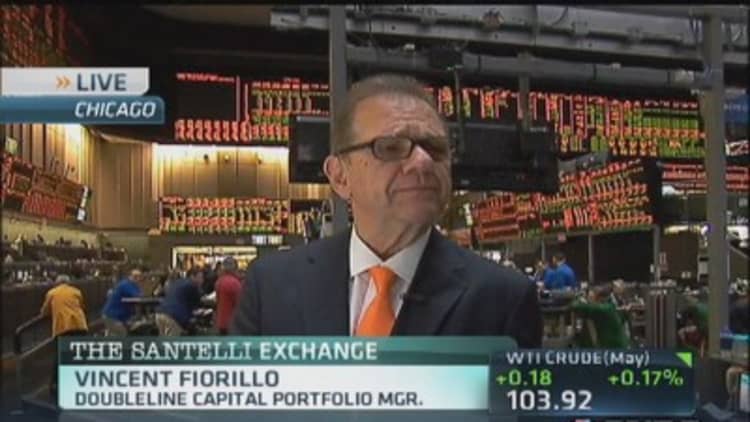The Senate Banking Committee next week will begin to mark up a bipartisan bill to reform the housing finance system by replacing Fannie Mae and Freddie Mac and giving the private mortgage market a bigger role.
It's a well-meaning effort and long overdue given that the GSEs required a massive taxpayer bailout five years ago and still pose a significant risk to the financial system should the housing market crash again.
The effort also has almost no chance of success.
The current housing finance system, in which Fannie and Freddie guarantee payments to investors in nearly 60 percent of U.S. mortgages, is likely to be with us until after the 2014 midterm elections and probably well beyond.
There are many reasons for this. The first is that the Senate Banking Committee is taking up its bill authored by Chairman Tim Johnson, D-S.D., and ranking member Mike Crapo, R-Idaho, far too close to the midterms. Partisans on both sides are already turning the issue into a political weapon rather than an area for serious negotiation and dealmaking.
Read More Why Obama's Keystone opposition reeks of politics
On the right, a group of 26 conservative organizations including the Competitive Enterprise Institute, the Club for Growth and the National Taxpayers Union wrote to members of Senate Banking this week strongly opposing the Johnson-Crapo bill.
The groups blasted the effort, which would replace the GSEs with a Federal Mortgage Insurance Corp., saying it "does not constitute real 'reform,' but an expansion of the type of government intervention that fueled the housing crisis in the first place."
On the left, the National Urban League wrote to members that the bill would not do enough to promote affordable housing and flatly rejecting the idea that the GSEs played a major role in the mortgage crisis.
Meanwhile, proponents of a modest version of housing reform such as Johnson-Crapo, are being very tepid in their support.
White House Council of Economic Advisors Director Jason Furman and CEA member James Stock wrote an op-ed in The Wall Street Journal on Friday that it was critical to pass some kind of reform.
But they committed to no specific bill and used the kind of gauzy language usually associated with the beginning of a legislative effort rather than a last-ditch attempt to get something done before the 2014 midterms.
Read More Fannie stock dives after Senate bankers reach deal
"[T]he current period of relative economic calm is exactly the right time" to reform the housing finance system, the White House officials wrote. "The Senate Banking Committee is making promising bipartisan progress on this crucial task, and the administration looks forward to continuing to work with Congress to forge a new private housing-finance system."
A basic translation of that piece would read: "We want to be associated with the idea of GSE reform without getting tied to anything specific that might hurt us and we know nothing is going to happen anytime soon and we plan to do almost nothing to help."

Supporters of some kind of relatively modest reform that retains a big governmental role, including many banking and realty groups, have also been fairly muted, simply expressing their polite approval of Johnson and Crapo's efforts.
A group of big housing and financial groups launched a print ad campaign this week in major D.C. publications (including POLITICO) advocating some kind of GSE deal also without actually endorsing Johnson-Crapo.
At this point it's not clear Johnson-Crapo even makes it out of committee much less to passage on the Senate floor.
Democrats are making the midterms about economic inequality and the plight of the 99 percent so it's somewhat hard to imagine Majority Leader Harry Reid pushing forward a bill that many on the left will say makes the dream of homeownership and financial security even harder for many Americans.
On the House side, Financial Services Committee Chair Jeb Hensarling's PATH Act got out of committee last year but can't get to the floor as GOP leadership waits to see what the Senate does.
So the chances of this Congress doing anything on housing reform are pretty much zero as the midterms draw closer. And it is pretty hard to see prospects improving much in the period between the midterms and the 2016 presidential campaign especially as the housing market is already showing signs of significant slowing as mortgage rates tick higher.
Read MoreWhy is Cramer enthusiastic about these declines?
That would lead us to 2017 when the economy may be headed toward—or already in—another downturn. And the costs of not fixing the system now could become painfully apparent.
—By Ben White. White is POLITICO's chief economic correspondent and a CNBC contributor. He also authors the daily tip sheet POLITICO Morning Money [politico.com/morningmoney]. Follow him on Twitter @morningmoneyben.


